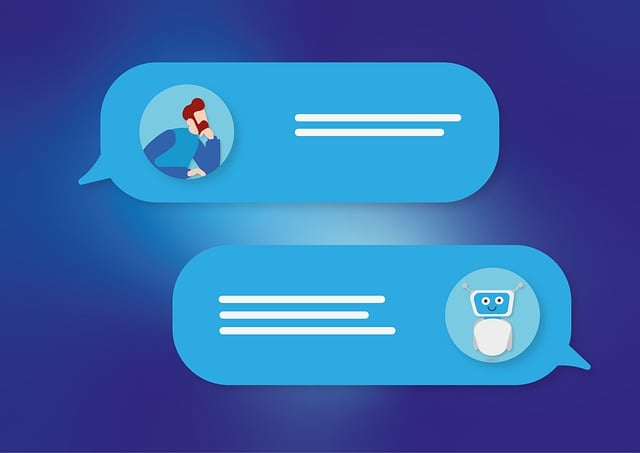How Call Centers Can Mitigate the Impact of OpenAI ChatGPT Outages

Artificial intelligence tools like OpenAI ChatGPT have become indispensable in call centers, streamlining customer interactions and handling repetitive tasks with speed and precision. However, as reliance on these tools grows, so does the risk of disruptions when outages occur. A sudden ChatGPT outage can overwhelm call center staff, disrupt operations, and negatively impact customer satisfaction. To address these challenges, call centers must implement robust contingency plans, leverage alternative tools, and prepare their teams for such scenarios.
This article explores the impact of a ChatGPT outage on call center staff, highlights alternative solutions, and offers actionable strategies to mitigate disruption and maintain customer satisfaction.
1. The Immediate Impact of a ChatGPT Outage
Increased Workload for Staff
When ChatGPT goes offline, the queries it typically handles are redirected to human agents, leading to:
-
Longer response times: Agents must manually address routine inquiries that the AI would normally resolve in seconds.
-
Higher stress levels: The sudden influx of calls and chats can overwhelm staff, leading to fatigue and decreased productivity.
Decline in Customer Experience
-
Delays in response: Customers accustomed to instant AI-driven responses may grow frustrated with slower human interactions.
-
Inconsistent service: Human errors may increase as agents attempt to manage higher workloads under pressure.
Operational Challenges
-
Resource constraints: Call centers with fixed staff numbers may struggle to manage increased demand during outages.
-
Communication bottlenecks: Agents may lack real-time updates on the outage, further complicating their ability to reassure customers.
2. Alternative Solutions to Supplement ChatGPT
To ensure operational continuity, call centers should integrate complementary AI tools and systems that can act as backups during a ChatGPT outage.
Claude by Anthropic
-
Key Strengths: Known for its ethical AI design, Claude excels in understanding long-form conversations and providing thoughtful, context-aware responses.
-
Use Case: Suitable for handling complex queries that require deeper context comprehension.
Gemini by Google DeepMind
-
Key Strengths: A multimodal AI that can analyze text, images, and data simultaneously. Its capabilities make it ideal for advanced customer interactions involving visual or cross-referenced data.
-
Use Case: Useful for industries like e-commerce or technical support, where customers may require image-based assistance.
Other Reliable AI Tools
-
Google Dialogflow: Customizable workflows and robust multilingual support make this a versatile choice for call centers.
-
Amazon Lex: Seamlessly integrates with AWS, providing scalability and high reliability.
-
IBM Watson Assistant: Offers strong security features and enterprise-grade solutions.
-
Microsoft Azure Bot Services: Works well within Microsoft ecosystems, offering easy integration with existing tools.
By employing a hybrid AI strategy, call centers can distribute workloads across multiple systems, reducing reliance on a single platform.
3. Strategies for Handling AI Outages
Enhance AI and Human Collaboration
-
Distribute tasks: Use multiple AI platforms for different functions—e.g., Claude for complex queries and Dialogflow for FAQs.
-
Enable manual overrides: Ensure agents can seamlessly take over conversations when AI tools fail.
Promote Self-Service Options
-
FAQ Pages: Maintain up-to-date self-help resources on websites and apps, allowing customers to resolve common issues independently.
-
Interactive Voice Response (IVR) Systems: Direct customers to relevant resources or prioritize critical calls for human agents.
-
Mobile Apps: Offer features that let customers track issues, access troubleshooting guides, or check service status.
Optimize Staffing Models
-
On-demand staffing: Maintain a pool of trained part-time agents who can step in during high-demand periods.
-
Remote flexibility: Equip remote agents with secure access to systems for rapid scaling.
-
Adjustable shifts: Implement flexible shift schedules to cover unexpected demand spikes.
Ensure Effective Communication
-
Real-time updates: Provide agents with live updates on outage status through internal dashboards or communication tools.
-
Proactive notifications: Inform customers of the outage and expected resolution time via email, SMS, or social media.
Train Staff for Contingency Scenarios
-
Role-playing exercises: Simulate outage scenarios to train agents in managing high-pressure situations.
-
Clear protocols: Develop step-by-step guides for agents to handle queries during AI downtime.
-
Emotional support: Offer resources to help staff cope with the stress of managing outages.
4. Long-Term Measures to Minimize Outage Risks
Adopt a Redundant AI Strategy
-
Backup AI Platforms: Maintain multiple AI tools to ensure continuity during outages. For example, switch to Claude or Gemini if ChatGPT becomes unavailable.
-
Load balancing: Distribute tasks across different AI systems to avoid over-reliance on a single platform.
Invest in Monitoring and Maintenance
-
Proactive monitoring: Use tools to detect potential issues with AI platforms before they escalate.
-
Regular updates: Keep AI software and integrations up to date to prevent compatibility issues or vulnerabilities.
Enhance Customer Education
-
Encourage customers to use self-service tools for common queries.
-
Provide clear guidance on alternative ways to contact support during outages.
Future-Proofing with Advanced AI
-
Explore new technologies like Gemini and Claude to diversify capabilities and reduce risks associated with relying on a single AI system.
-
Regularly review and update AI integration strategies to align with evolving customer needs and technological advancements.
5. The Role of Leadership in Managing AI Outages
Leadership teams in call centers play a critical role in navigating AI outages:
-
Empowering Agents: Provide training and tools to help agents excel during disruptions.
-
Investing in Resilience: Allocate resources for backup AI systems and staff development.
-
Building Customer Trust: Communicate transparently with customers about outages and steps being taken to resolve them.
6. Conclusion
An OpenAI ChatGPT outage can pose significant challenges for call centers, but with the right strategies, its impact can be minimized. By adopting complementary AI tools like Claude and Gemini, enhancing self-service options, and optimizing staffing models, call centers can maintain operational efficiency and customer satisfaction even during disruptions.
The future of call centers lies in creating resilient systems that combine human expertise with cutting-edge AI technology. With careful planning and proactive measures, call centers can continue to deliver exceptional service—no matter what challenges arise.


